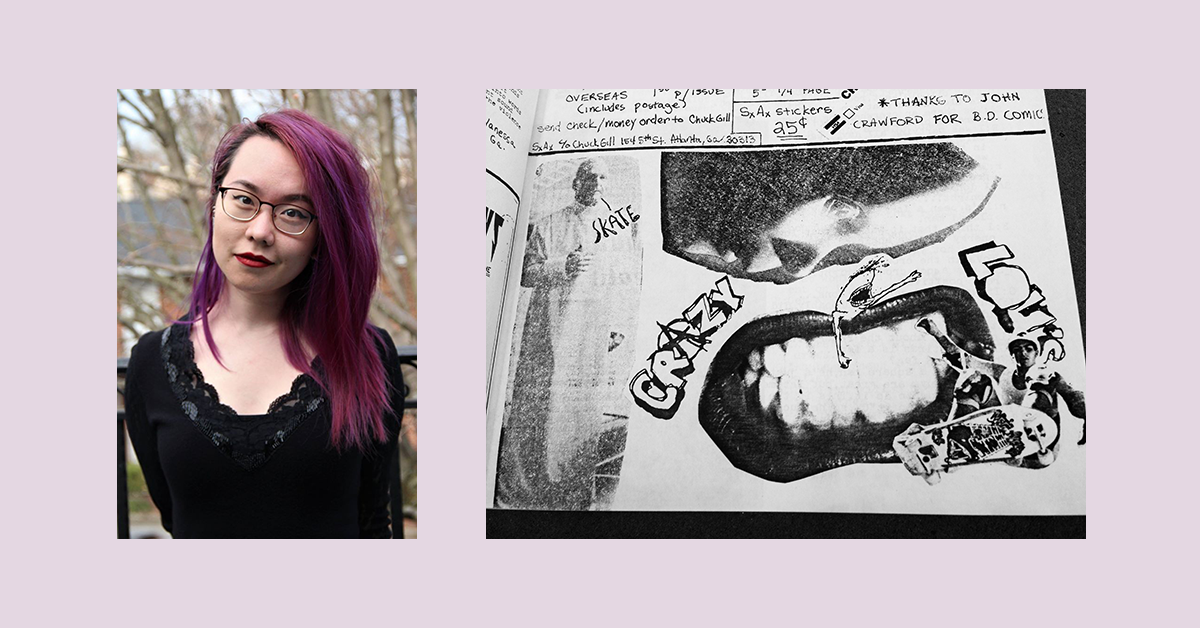This is the second post in an ongoing series of publications featuring the reflections of graduate students who have worked with the Emory Center for Digital Scholarship through an ECDS graduate fellowship and/or Woodruff/ECDS graduate fellowship.
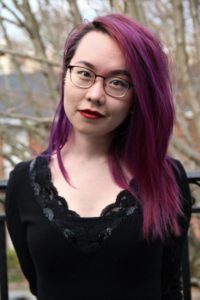 The Woodruff/ECDS Fellowship in Digital Humanities was a wonderful opportunity to hone my existing digital scholarship skills and learn new aspects of digital humanities. My work during this 2019-2020 fellowship included: spearheading a project to digitize punk zines from the 1980s-1990s in the Rose Library’s Atlanta Punk Periodicals collection in order to present those zines in an online zine exhibit; working as an editorial associate for Atlanta Studies journal; creating original content and helping ECDS staff members draft blog posts for the official ECDS blog and social media accounts; redesigning images and managing layout for the ECDS blog; and gathering and posting content to the Atlanta Studies Network webpage in support of ongoing grant applications. During this time, I also completed my PhD in English, with my dissertation focusing on representations of embodiment and monsters in science fiction literature and media.
The Woodruff/ECDS Fellowship in Digital Humanities was a wonderful opportunity to hone my existing digital scholarship skills and learn new aspects of digital humanities. My work during this 2019-2020 fellowship included: spearheading a project to digitize punk zines from the 1980s-1990s in the Rose Library’s Atlanta Punk Periodicals collection in order to present those zines in an online zine exhibit; working as an editorial associate for Atlanta Studies journal; creating original content and helping ECDS staff members draft blog posts for the official ECDS blog and social media accounts; redesigning images and managing layout for the ECDS blog; and gathering and posting content to the Atlanta Studies Network webpage in support of ongoing grant applications. During this time, I also completed my PhD in English, with my dissertation focusing on representations of embodiment and monsters in science fiction literature and media.
I think it is fair to say that, even without the interruption of COVID-19, I had initially bitten off more than I could chew when I first wrote about my project intentions for the Emory Libraries blog (published in November 2019). Even though the pandemic and switch to remote work ultimately inhibited the digitization of punk zines for my online zine exhibit and other related digitization/publishing projects, I am proud of the work and experience I gained in the process of successfully pushing the project to approval stage. The digitization project ended up teaching me more about copyright, fair use, and sleuthing for people via Google and Facebook than I had ever anticipated learning. Such work, while demanding and occasionally pedantic-like, was necessary in managing the zine project. I especially appreciate the help of various librarians/library staff who met with me to discuss various aspects of the project.
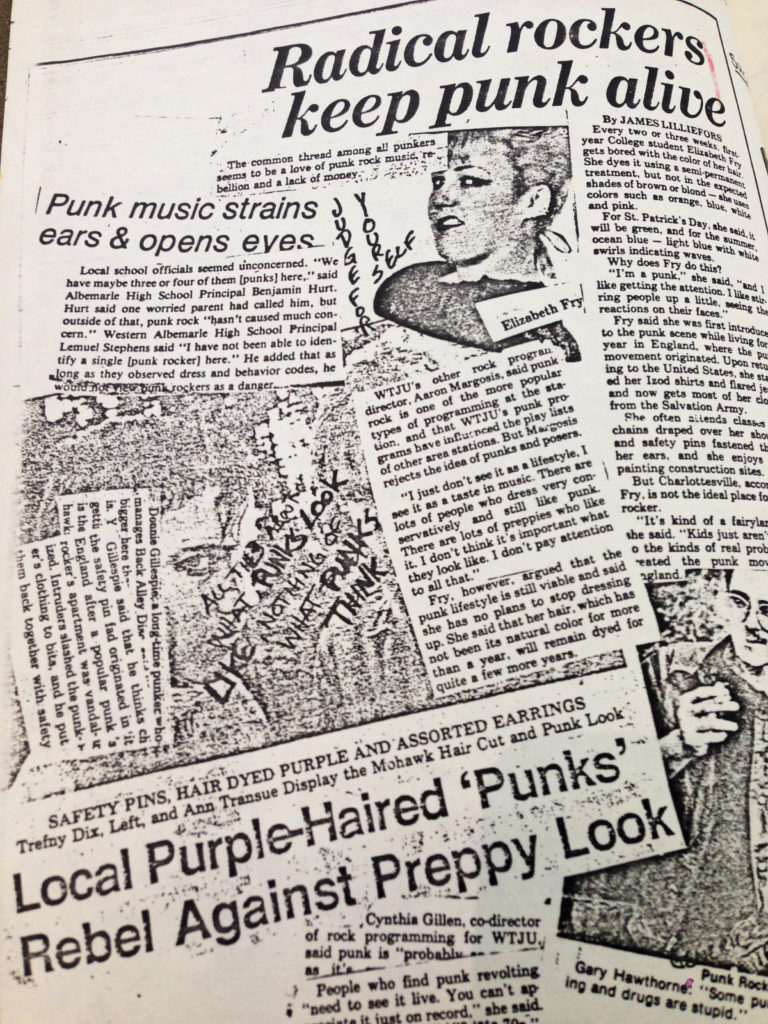
I oversaw every step of the process in securing approval for the zine digitization project. These materials fascinated me not only as someone interested in the punk subculture but also because several years ago I had published my own monthly zine (see “Personal Projects” section of my website for more details). In September 2019 I started by setting up initial meetings with my faculty sponsor, Jesse Karlsberg, as well as Rose Library’s Randy Gue (Curator of Political, Cultural, and Social Movements Collections) and Sarah Quigley (Head of Collection Processing). After narrowing down the scope of materials to six zine titles (12 issues total), I visited the Rose Library reading room to conduct an initial overview of the materials. After meeting with Melanie Kowalski (Copyright & Scholarly Communications Librarian) to discuss potential issues with fair use and risk assessment, I compiled a more thorough content inventory after revisiting the collection in October. Then began the long process of filling out fair use rationale drafts, writing up and sending permissions forms to any and all creators or collaborators involved in each zine issue, meeting with Chris Kellner (Emory’s General Counsel) for legal advice on risk assessment involved with digitizing punk materials (some of which included strong language and, in one zine issue, a small cut-and-pasted photo containing male nudity); and ultimately getting the project approved with the help of members of Emory’s Scholar Communications Office and Yolanda Cooper (Dean and University Librarian). I had met with the library’s Head of Digitization Services, Kyle Fenton, just prior to quarantine lockdown in order to begin the process of digitizing materials. Although the shift to remote work has halted this process, the experiences I gained through shepherding this project to that stage have been insightful.
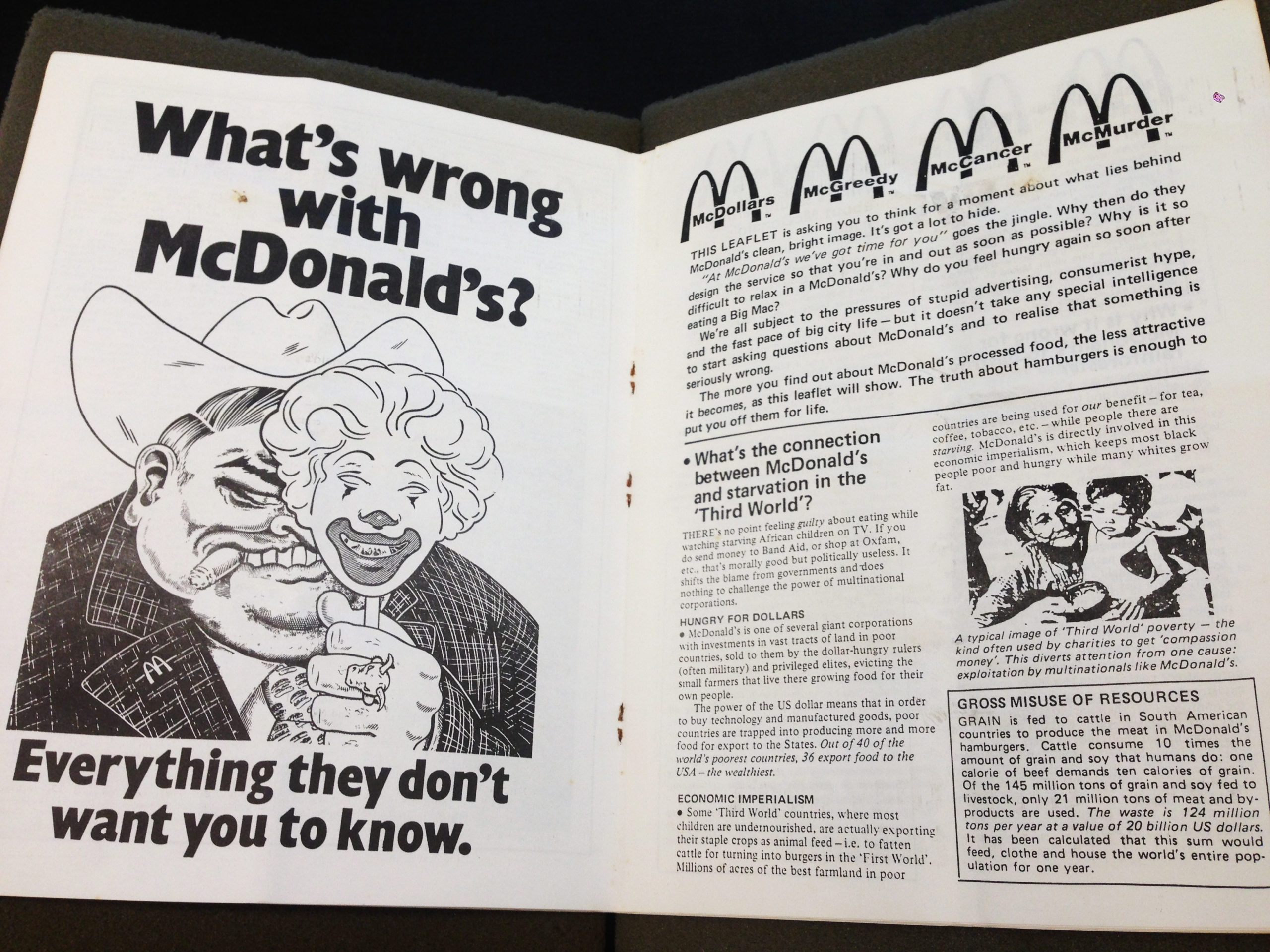
I found some aspects of the project fun, while others frustrated me. On a humorous note, I found myself trying to chase down the pseudonymous “Crash Rats” (author of a zine called Decontrol) in all corners of the Internet, falling down a rabbit hole of Facebook friends lists and a trail of punk band members’ various websites in an attempt to catch the elusive zine creator. (On that front, I did not unveil the mystery behind the punk moniker, but I did manage to find and have conversations with other zine collaborators and creators who had used pseudonyms during their zine-making days.) Other aspects, like fair use and risk assessment, made me feel like I was weighed down by legal technicalities. Given the current debates about so-called fake news, independently published materials that engage with politics critically seem more important than ever, and both I and the Rose Library project collaborators agreed that it would not seem likely that any of the zine makers would sue the library for the public, scholarly display of their materials. (After all, such litigation would not seem fitting with the general punk ethos.) At what point do the existing copyright laws, ostensibly created to protect artists, actually start to hinder creative expression and promotion of important writing, art, journalism, etc.?
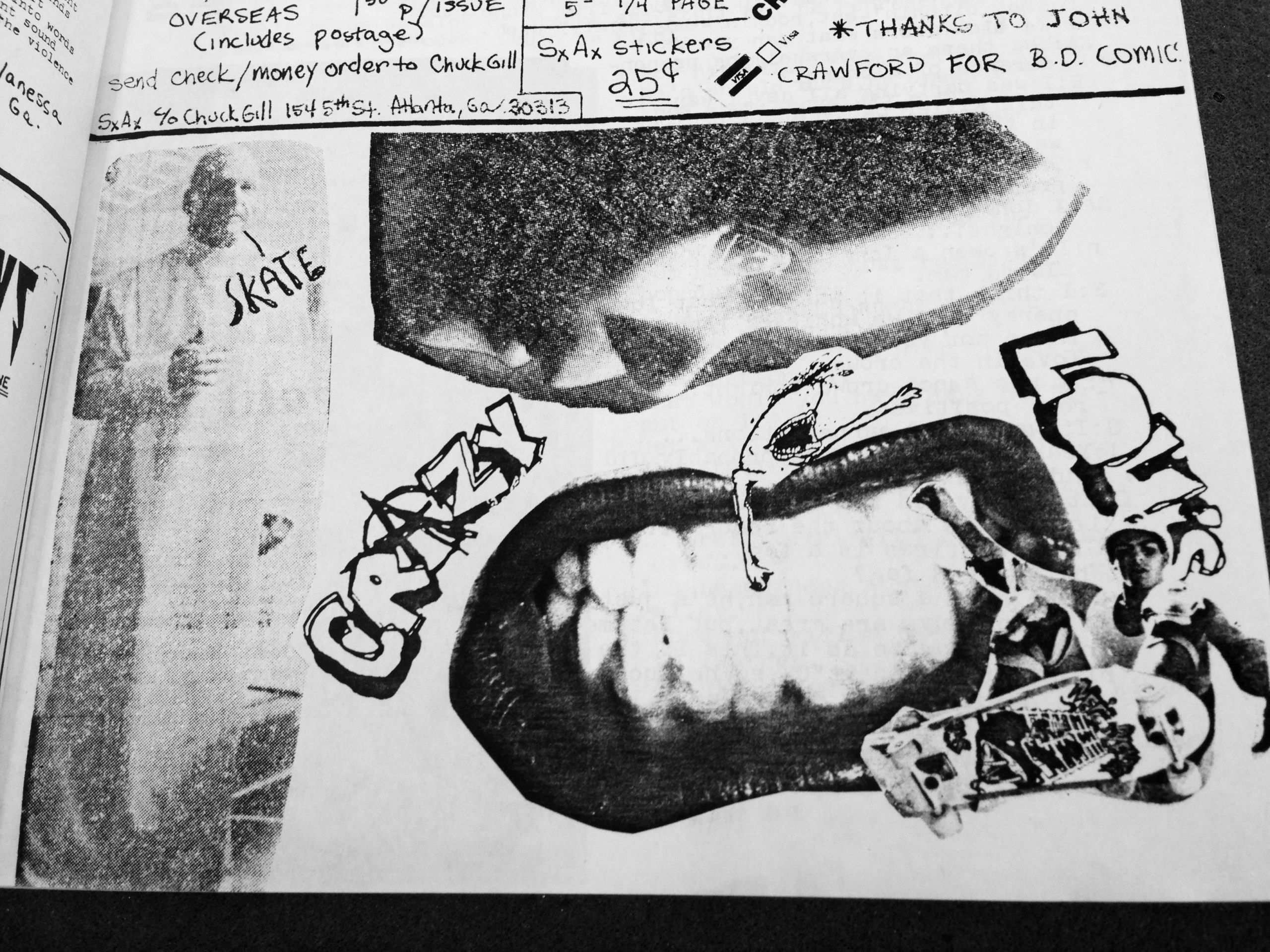
While I doubt any radical changes to copyright and fair use laws are forthcoming, such questions seem to support a push toward open-access publishing and scholarly resources. During my fellowship I worked as an editorial associate for the open-access, peer-reviewed Atlanta Studies journal. In this role I began my foray into the world of publishing, which I hope to further explore in the future. I helped conduct peer review of articles/blog posts submitted by authors, completed meticulous copy-edits on accepted articles, aided with layout and publication, and promoted new publications and symposium information via Mailchimp newsletters and social media.
During the time of COVID-19 I found myself busier than ever with my social media and blog management work for the ECDS, which included promoting open-access publishing initiatives like Southern Spaces (one of the ECDS’s flagship journals, primarily managed and published by fellow graduate students), Post45 (which recently moved to Emory University with the aid of the ECDS), the recently-launched Sounding Spirit Digital Library, and more. I was also able to promote and provide insight into important projects like instructional videos the ECDS helped produce for the Emory University School of Medicine and Emory Visual Medical Education (VME) on how to properly use and conserve PPE.
I have long been fascinated by communications and social media, an interest that aligned with the Digital Humanities fellowship work that I had first begun as a graduate intern through the ECDS’s Digital Scholarship Internship Program (DSIP). So many scholars produce impactful work, but sometimes those scholarship projects do not reach a wider audience. One of the projects that I am most proud of from the past few months is the image redesigns I made for the ECDS blog (see examples in slideshow gallery above). With this new design aesthetic I aim to help the ECDS gain a visible sense of identity and hopefully provide its resources and publications to more people, in and outside of the walls of academia.
Overall, I am grateful for the work I have accomplished during this busy and strange past year. Not only did the fellowship provide me with much-needed time to finish my PhD dissertation, but it also more importantly taught me skills that will benefit me in a future career. I want to especially thank my fellowship sponsor Jesse Karlsberg, a fellow ECDS colleague who championed my ideas and granted me the freedom to seek my own opportunities as a scholar. Thank you also to the ECDS co-directors Wayne Morse, Jr. and Dr. Allen Tullos as well as the entire ECDS staff for their help!
